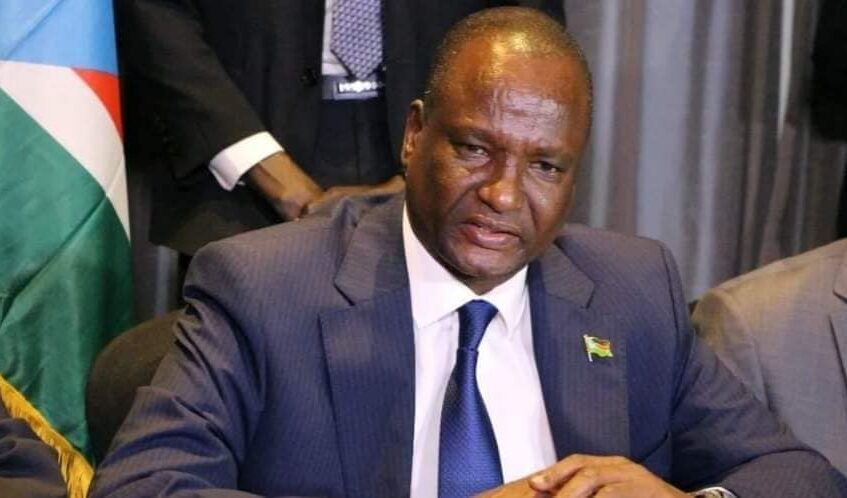
Taban Deng Gai, Vice President for infrastructure cluster - Courtesy
The Vice President for infrastructure cluster has appealed to the Japanese government to provide South Sudan with a soft-loan for development projects in the country.
A soft loan – also known as soft financing – is a loan with no interest or a below-market rate of interest.
It has lenient terms, such as extended grace periods in which only interest or service charges are due, and interest holidays.
Soft loans typically offer longer amortization schedules – in some cases up to 50 years – than conventional bank loans.
They are often offered not only as a way to support developing nations but also to form economic and political ties with them.
This often happens if the borrowing nation has a resource or material that is of interest to the lender, which may want not only repayment of the loan but favorable access to that resource.
On Tuesday, Vice President for infrastructure cluster, Taban Deng Gai appealed to Japan to give South Sudan soft loans.
Kawaja Kau, the press secretary in the office of Taban says his boss’s request is for development projects in South Sudan.
Kau also stated that VP Taban expressed appreciation to Japan for the construction of the Freedom Bridge in Juba.
“His excellency [Taban] appreciated the government of Juba for building a very wonderful bridge,” Kau told the state-owned TV, SSBC on Tuesday.
“His excellency also appealed to the Japanese government that they should also provide a loan, a soft loan because the government of Japan has done a lot for the people and government of South Sudan.
“There is a need also for the government of South Sudan to request for a soft loan and if that soft loan is granted it will be also good.”
Kau did not mention how much soft loan the government is appealing for from the Japanese government.
In June 2019, the International Monetary Fund said South Sudan’s habit of taking loans from various continental and global banks -with the promise to repay them with proceeds from future oil revenues -is expensive and nontransparent.
President Salva Kiir then instructed the then Minister of Petroleum, Daniel Awou not to demand or accept oil advances before the actual sale of South Sudan’s crude oil to the international market.
He said the government should only receive money that is generated from the oil sale and not loans.
In May last year, some citizens criticized the government for continually taking money from international financial institutions in the name of the people, but delivering no services.
Support Eye Radio, the first independent radio broadcaster of news, information & entertainment in South Sudan.
Make a monthly or a one off contribution.
Copyright 2024. All rights reserved. Eye Radio is a product of Eye Media Limited.